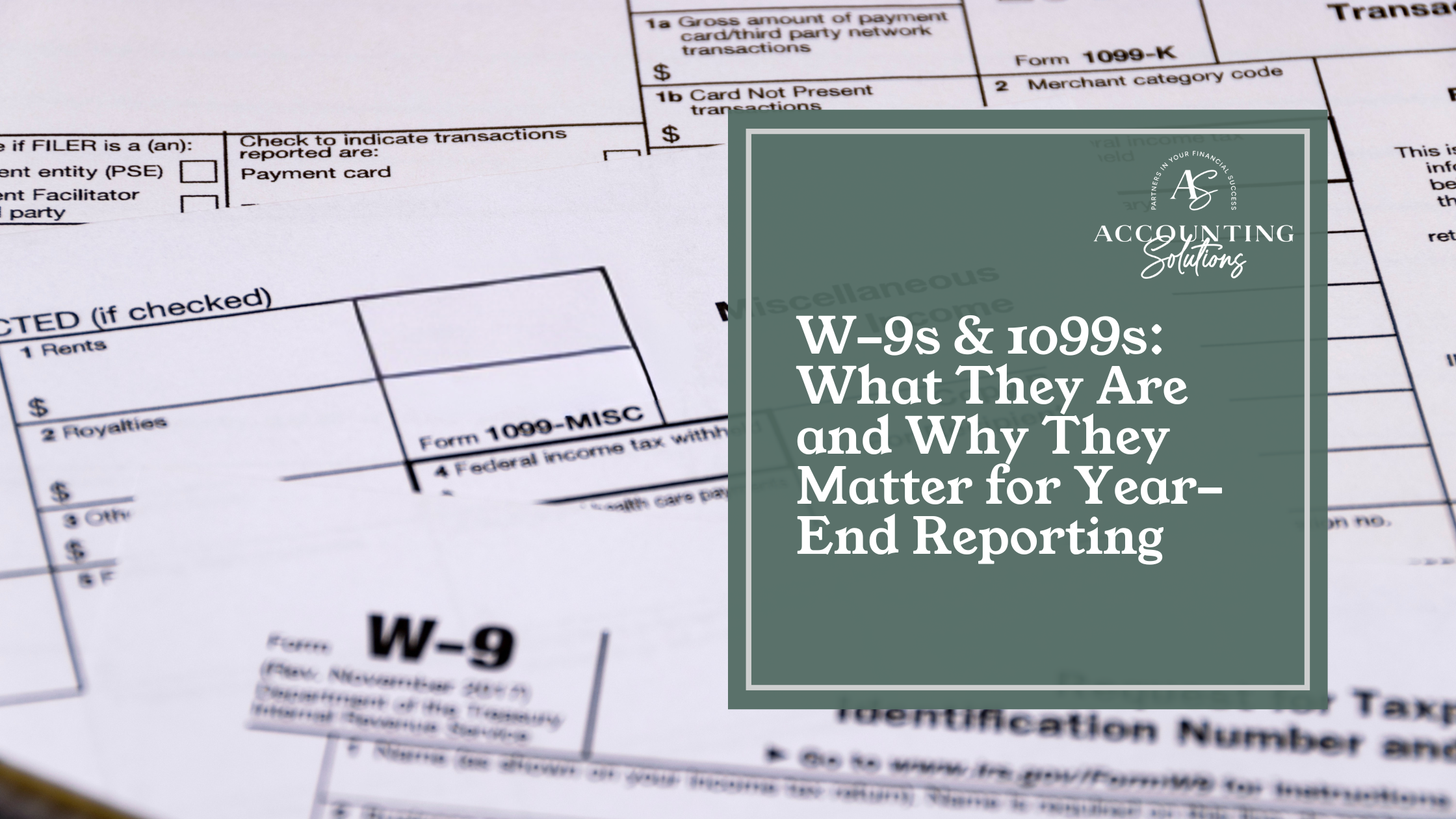W-9s and 1099s
What They Are and Why They Matter for Year-End Reporting
As the year winds down, it’s not just the holidays that deserve your attention—W-9s and 1099s should be on your year-end checklist too. These IRS forms may seem small, but they’re critical for accurate recordkeeping and smooth tax reporting. Gathering them before December 31 keeps your books clean and ensures your accounting professional has everything needed when year-end rolls around.
What Is a W-9?
The W-9 form (Request for Taxpayer Identification Number and Certification) is used by businesses to collect key information from independent contractors, freelancers, and vendors. It includes the payee’s legal name, address, and Taxpayer Identification Number (TIN)—either a Social Security Number (SSN) or Employer Identification Number (EIN).
Why W-9s Matter
If your business pays a contractor $600 or more during the calendar year, the IRS requires that payment to be reported on a Form 1099-NEC. The W-9 provides the verified details your accountant needs to prepare those forms correctly.
Failing to collect or maintain a W-9 can result in inaccurate filings, delays, or even IRS penalties. Having complete and organized W-9s ensures your accounting team can file accurately and on time—protecting both your business and your vendors.
What About Form 1099-MISC?
In addition to contractor payments, the 1099-MISC form is used to report various other types of payments—most commonly rent paid during the year. If your business pays rent to a landlord or property owner totaling $600 or more, that amount generally must be reported on a 1099-MISC. The information for that form also comes from the landlord’s W-9, so gathering it early is key.
The Year-End Deadline: December 31
All W-9s should be collected before January 1 as part of your year-end preparation. This deadline gives your accountant time to review the information and prepare the required 1099 forms before the IRS filing deadline of January 31.
To stay organized:
Request a completed W-9 from every vendor, contractor, or landlord you paid in 2025.
Confirm each form is signed, complete, and legible.
Store W-9s securely—they contain sensitive identifying information.
Review your records to ensure no vendors or payees have been missed.
For Contractors and Freelancers
If a client requests your W-9, provide it promptly and accurately. It allows their accounting professional to prepare the necessary IRS documents and ensures your income is reported under the correct identification number.
Trusted Resources
The Bottom Line
Collecting W-9s may not feel festive, but it’s an essential part of responsible business management. It’s not about doing your own tax work—it’s about giving your accounting professional what they need to represent your business accurately and keep you compliant.
At Accounting Solutions, we help business owners stay organized and confident as the year closes. Preparing now means fewer surprises later—and that’s something worth celebrating.

